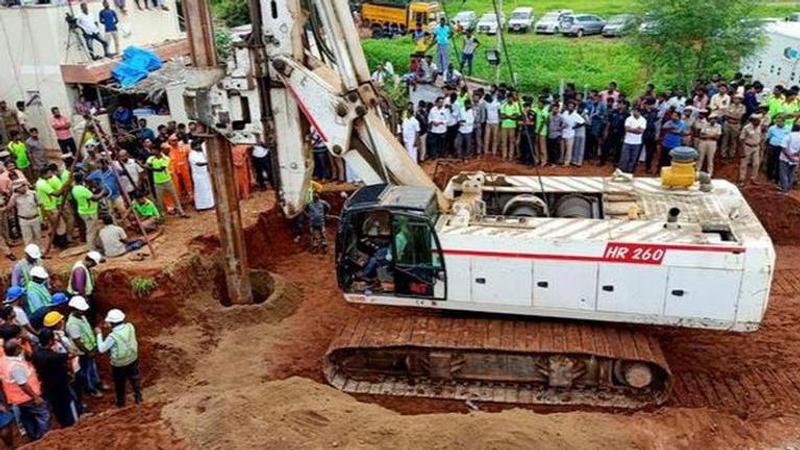Published 20:19 IST, October 28th 2019
Years ago, TN Govt mandated sealing unused borewells
Repeat incidents of children falling into abandoned borewells in Tamil Nadu had prompted the state government to notify rules early in 2015, mandating safety measures, including filling discarded wells upto ground level.

Repeat incidents of children falling into abandoned borewells in Tamil Nadu had prompted the state government to notify rules early in 2015, mandating safety measures, including filling discarded wells upto ground level. As tens of thousands prayed for the safe rescue of three-year-old Sujith Wilson, trapped in an unused farm borewell near Tiruchirappalli for over 72 hours, it brought back the focus on such uncovered defunct borewells.
After Tamil Nadu witnessed such repeat incidents in April 2014, the government amended local laws in August that year, including the 'Tamil Nadu Panchayats Act' to further regulate sinking of wells and related aspects like its proper maintenance. The amendments mandated permission from authorities for sinking wells and its non-compliance, attracting a minimum of three years imprisonment.
After such amendments, the government notified the 'Tamil Nadu Panchayats Rules' and 'The TN Municipalities Rules,' both on regulation of sinking of wells and safety measures, in early 2015. Under the norms, a permit has to be taken for sinking, deepening or rehabilitation of a well and an application has to be made for grant of certificate of registration to carry on the business of sinking wells.
The rules on safety aspects mandate that every holder of the permit or owner of a well in use or disuse, shall, while sinking, deepening or rehabilitating a well, adhere to specified norms. It should be ensured that the well is not left uncovered during recess or cessation of work. Clause 'd' under the head safety measures specifies "fill up abandoned wells upto the ground level using clay, sand, boulder or any other suitable materials."
Before commencing work, signboards should be erected in a conspicuous manner at the site of the well, displaying the nature, width and depth of the well and the name, address and contact details of the owner. The rules also mandate that barbed wire fencing or any other suitable barrier be put up around the site of the well. On such rules mandating safety measures, senior advocate Sudha Ramalingam said though there are laws to govern the matter, she alleged "lethargic execution and lack of proper supervision" by competent authorities.
"We wake up only when something of this sort happens and later forget it. There is no proper understanding of the rules and people are also not cooperative. It may not be prudent to look forward to the government to correct things in my compound. It is my duty to see that a defunct borewell in my backyard is properly shut," she told PTI, adding that as a nation "we have very little regard for human lives."
In September 2014, the Madras High Court had disposed a PIL plea on abandoned borewells after the Tamil Nadu government submitted that suitable amendments have been made to enactments to provide for more regulations and stringent punishment. Such incidents have occurred in other parts of the country as well, including neighbouring Karnataka, which had years ago said a total of 1,47,786 defunct borewells have been closed in view of mishaps involving children.
In the wake of such incidents, the Supreme Court had in 2010 directed all states to cap all abandoned borewells in their territories and to properly fence all the working wells to prevent small children falling into them. The top court had also directed random inspection of the abandoned wells by authorities.
Updated 20:26 IST, October 28th 2019




